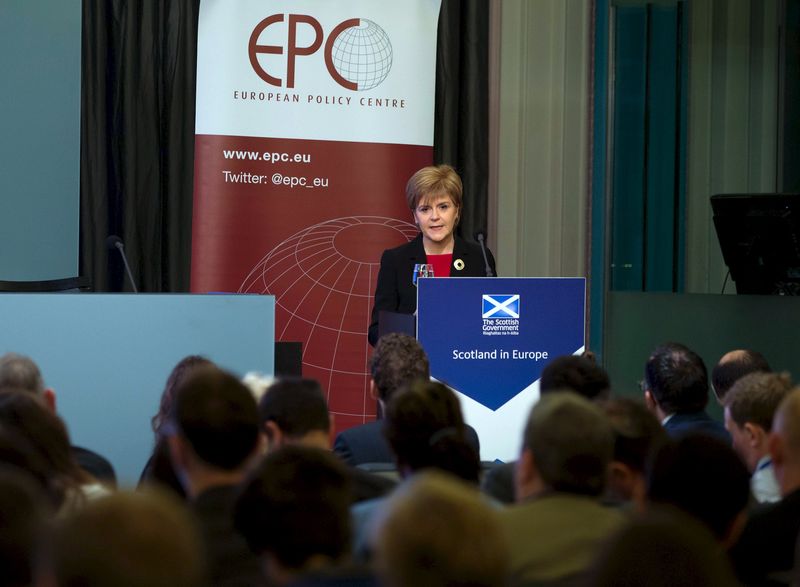BRUSSELS (Reuters) - Scotland's First Minister Nicola Sturgeon told British Prime Minister David Cameron on Tuesday he could provoke another independence vote if he failed to secure Britain's continued EU membership because Edinburgh sees its future in Europe.
In a speech setting out the stark differences between the Scottish and the British governments' positions on the European Union, Sturgeon said a British exit from the bloc would lead to a backlash against London.
"My message to David Cameron is: you don't want to create the conditions for another independence referendum," she told EU diplomats and officials at an event in Brussels.
"We must be part of the European Union. If Scotland were to be taken out of Europe despite voting as a nation to have remained, it would provoke a strong backlash," she said.
Cameron has promised to renegotiate Britain's ties with the EU before a membership referendum by the end of 2017 to meet criticism from some, particularly in his Conservative party, that the bloc' institutions have become overbearing.
But Scots, who polls show to be far more in favour of remaining in the European Union than the English, would not accept being outside the bloc if a majority of British people vote to leave in a referendum, Sturgeon said.
Sturgeon's Scottish National Party has enjoyed a surge in popularity since it led a failed bid for independence last year, winning all but three of Scotland's 59 parliamentary seats in a British national election last month.
She reiterated her call for a veto on the referendum to effectively make a British exit from the European Union impossible, although Cameron has ruled out such an idea.
Sturgeon believes Britain's constituent nations of Scotland, England, Northern Ireland and Wales should be required individually to support a British withdrawal for it to go ahead, a so-called double majority that is a feature of federalism in Canada.
"If the UK, as we are told, is a family of nations...then nobody should be able to dictate to anybody else," Sturgeon said. "No one member of that family should be forced out against its will."

Most business leaders in Britain strongly oppose the prospect of the country leaving the EU, the biggest market for British goods, while international partners from the United States to Germany and Ireland have made it clear they oppose a British EU exit and think it would isolate Britain.